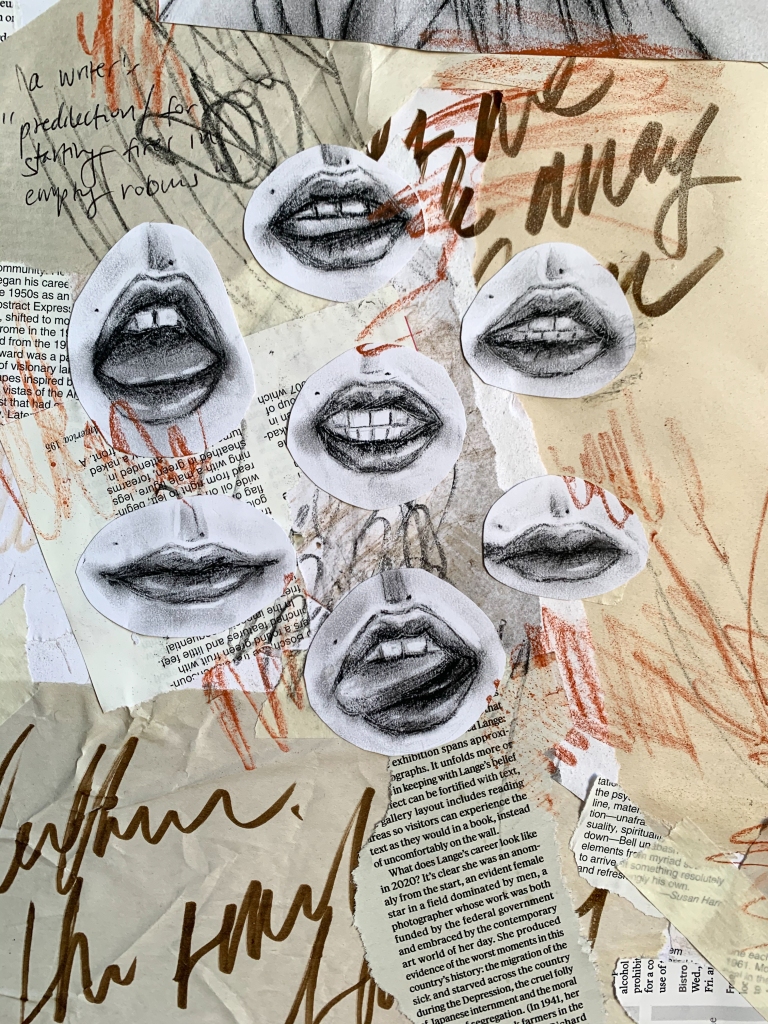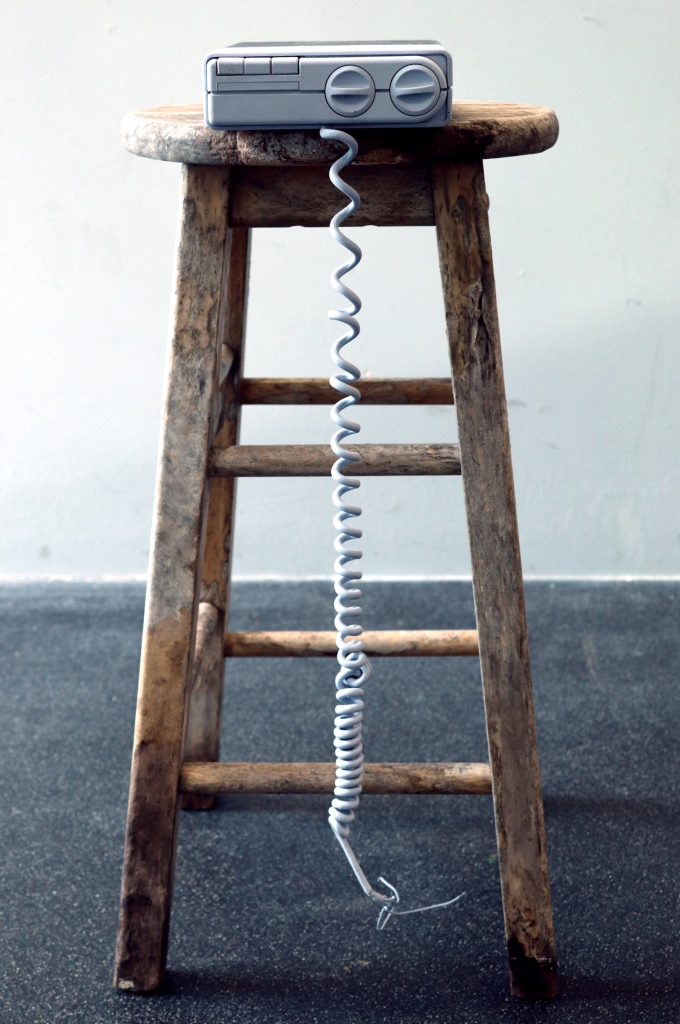Walgreens
From the Walgreens line, Sandy scans the post-Easter candy sale. Should she get yellow Peeps instead of pink? No, the pink matches her Plan B box, a tiny pill locked inside a clear plastic cage. She’d hate to be the sad lesbian that gets pregnant from a one-night stand.
The man behind her holds five packs of hair ties like a deck of cards. He examines them, touching his daughter’s silky brown hair. The young girl looks at Sandy’s Peeps, then up, at her thin hair in its messy bun. She probably thinks the box is a video game.
“They slide right out of her hair when she runs around at school,” the dad says to Sandy.
She must have been staring.
“You should try the bumpy ones,” Sandy says.
“They don’t have them,” he says. The girl shakes her head dramatically like they looked for the bumpy ones for ten hours. Her hair dances along the hem of her polka-dotted tank top. Her dad hands her a pack of really long ones lined with heart decals. “We’ll try these.”
Sandy admires his language of partnership with his kid. Pleased, the girl takes the rejected packs and sets them atop a rack of circus peanuts and 2/$5 trail mixes.
“Seems like a good choice,” Sandy says. She wonders if the dad is single, if he sits the girl in front of her cereal bowl every morning and brushes her hair into a pony, spit-smoothing flyaways and advocating for sneakers instead of sandals, so she can really run at recess. Sandy likes the pair but thinking about family makes her head fog.
She’s hungover from a Monday night spent with Michael, a thumb of a guy she met playing tennis at the Y. She’d just returned from visiting her ex, Kate, in Chicago, a grade-A weekend of slow mornings and afternoon sex, making out on the L, and talking all night.
“Look, we beat monogamy,” Kate had said, flashing a text from Linda, a flirtatious co-worker she’d told Sandy all about because they could be open like that now, before setting Sandy’s coffee on the nightstand and burying her face in Sandy’s neck. “Aren’t you proud of us? We can just be. We’re winning, like, the lesbo Olympics.”
Sandy had looked away, at the framed printer-paper drawing on Kate’s nightstand that they had penned when they were coworkers. Her heart ached some place deep. With you, I like monogamy, isn’t something she could make come out of her mouth. Kate would ask, why though, and Sandy would mutter something about her anxiety and Kate would remind her that her insecurities were her own to work through, and Sandy couldn’t refute that.
Kate had seen her eyes veer, Sandy knew. Kate had felt the second in which she could ask what Sandy wanted or needed, pass. Then they had sex again. Very good sex, during which Kate was right there, catching Sandy’s gasps in her own mouth, like that was the purest way to communicate.
Hours after landing, Sandy slammed a rock-hard neon serve at Michael. She sucked in her stomach like she rarely felt inclined to do. The lit rooftop of the Y, a green and blue painted platform, floated like an alternate dimension of downtown. As she jogged to grab a stray ball from the chipped edge of the court, she felt her head turn back towards Michael and her lips part.
In the clunky elevator, he asked her to get pizza down the street. She ended up in his bed. It was fun to turn him on, to play with easy conventions. Nothing important loomed unsaid. It was like she left half her brain in Chicago. He threw her a white undershirt to wear after sex and she thought it was a joke. In sleep, his arm snuck around her to cup her breast. She let it stay. The unexpected comfort of his soft heat, more satisfying and interesting than the sex, should have made her better understand Kate’s insistence that some of her friend crushes were solely cuddle buddies, but it only made Sandy curse how Kate gets too hot in the night and kicks the covers to the floor, leaving Sandy bare and shivering.
The morning was too much for her, though. Micheal’s gross-sweet sleepyhead voice and joke about sharing a toothbrush made her guiltily wish for an outdated masculinity that would smooch her hard on the lips, put on a suit, and leave her wrapped in silken sheets, alone. She weasled her way out of Michael’s, claiming her car’s meter overdue.
In the Walgreen’s line, she presses the sharp corners of the plastic box into the flesh of her palm, pissed at both Michael and Kate. She throws this little girl’s mom in the snake pit with them. Did she leave unexpectedly, suffocated? Did she have new lovers every month that she promised came second, but not really because she didn’t believe in relationship hierarchies? The little girl’s own wish to run free and happy on the playground makes this especially offensive.
Then, the daughter points to a single Reese’s egg and gives her dad baby eyes. He nods and she grins and then the dad grins at Sandy, as if to acknowledge the blessing she’d received in witnessing this morsel of unspoken father-daughter connection, and Sandy steps up in line, damning the too-cute pair, too, and their trusted codependence that, out of attachment anxieties, likely makes them ignore their vast incompatibilities.
Sandy slides her box and the Peeps towards the pimply teenage cashier. He looks at her, about to ask for ID, and then smiles sideways. He’s too cool to ask—their little secret. He unlocks the box, as she opens the Peeps with the edge of her car key. She drops the pill in her purse and tries not to remove her chip card too soon. She doesn’t want to have to say sorry.
Kelly Thomas (she/her/hers) is a queer writer of fiction and personal essay. She recently completed her MFA at University of California, Davis. Her work has appeared in 14 Hills, Duende, Metazen, FIVE:2:ONE, and Autostraddle.com. She’s currently working on a novel about rural queerness, marriage, chronic pain and an internet forum crush.














